Seed Money projects 2013
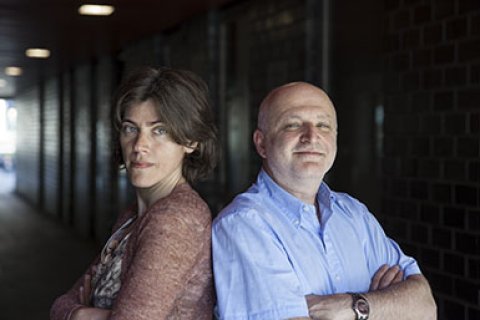
Linguistic aspects of texting and its influence on children's cognitive and social development
Main applicant: Dr Elma Blom (Assistant Professor in Special Education, SBS)
Co-applicant: Prof Sergey Avrutin (Humanities)
Children's use of texting (sending text messages by mobile telephone) has increased enormously in a short space of time. This research explores the effects of texting on the cognitive and social development of children. We aim to discover whether texting can lead to a cognitive benefit and are studying this in children with and without language disorders. We also believe that a thorough analysis of the linguistic characteristics of "text-speak" can increase our understanding of the causes of language disorders. We are also exploring whether children with language disorders have fewer communication problems when they text.
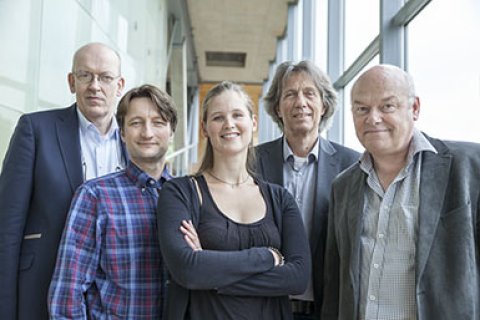
Comparative linguistic analysis of the development of bird song and children's language
Main applicant: Prof Johan Bolhuis (Professor of Cognitive Neurobiology, SBS)
Co-applicants: Prof René Kager (Humanities), Dr. Gabriël Beckers (Sciences), Prof Martin Everaert (Humanities)
In children, language acquisition is crucial for the development of identity, communication skills and adaptation to a changing environment. Song birds that learn their songs are a good animal model for language acquisition since the process happens much faster in birds and can be placed under complete experimental control. In this project, we are comparing the development of speech and language in children with the learning of song in zebra finches. We are testing a theory in which both ‘static’ learning processes and inherited factors regarding intonation (‘prosody’) are important in language development among children and investigating whether the zebra finches learn their songs in a comparable way.

Resilience and vulnerability in young people: interactions between neighbourhood factors and individual characteristics
Main applicant: Prof Susan Branje (Professor of Adolescent Development and Socialisation, SBS)
Co-applicants: Dr R. Yu (SBS), J. Nieuwenhuis MSc (GEO), Prof P. Hooimeijer (GEO)
Young people who are resilient are capable of positive development even in extremely difficult circumstances. Individual characteristics can affect how vulnerable young people respond to stresses in the environment. While certain young people in problem neighbourhoods develop psychosocial problems, others show positive development in the same circumstances. This project examines the way in which young people's individual characteristics, such as personality, genetic factors and response to stress determine the extent to which neighbourhood factors influence their psychosocial development. As such, the project is intended to provide information on people most at risk in problem neighbourhoods.
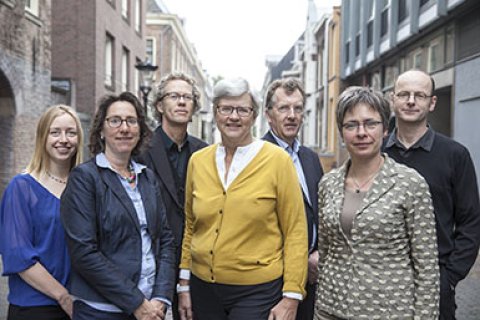
Religious and cultural influences on children's identity development during government interventions
Main applicant: Prof Katharina Boele-Woelki (Professor in International and Comparative Private Law and Family Law, LEG)
Co-applicants: Dr Christoph Baumgartner (Humanities), Dr Jan Boom (SBS), Dr Mariëtte van den Hoven (Humanities), Dr Wibo van Rossum (LEG), Dr Jet Tigchelaar (LEG)
Child protection measures often involve families with a minority religious faith or cultural background. Examples include a boy born in the Netherlands to Turkish parents being placed in a lesbian foster family, or legal disputes between divorced parents concerning the choice of school for their children. Parents who refuse to vaccinate their children for religious reasons and children who are raised in religious sects are other examples of causes for concern. From a legal and sociological, philosophical, ethical and developmental-psychological perspective, the project explores the question of how the government deals with children's cultural and religious identity when it intervenes. The aim is to develop an ethical framework that can be used by government officials.
Film portrait of Prof Katharina Boele-Woelki
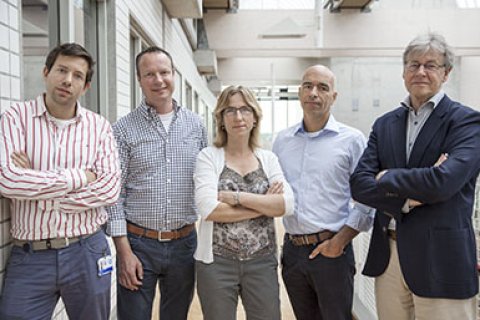
Vulnerability and resilience in adolescence: genetic and epigenetic risk factors in the development of anxiety and depression
Main applicant: Dr Marco Boks (Rudolf Magnus Brain Centre)
Co-applicants: Prof W. Meeus (SBS), Prof S. Branje (SBS), Prof P. van Lier (VU, SBS), Dr C. Vinkers (UMCU)
Both genetic and environmental factors determine how we develop, and therefore how well we deal with stressful events. In a major study of children (the RADAR cohort), a lot of information was collected on how environmental factors relate to emotional development and a tendency towards anxiety and depression. In this study, we will explore how genetic factors influence this development. The research is innovative insofar as it also explores epigenetics: the phenomenon involving genes being activated or deactivated by environmental influences. We suspect that in individuals who have difficulty managing stress the genes that are responsible for resistance to stress have been switched off epigenetically.
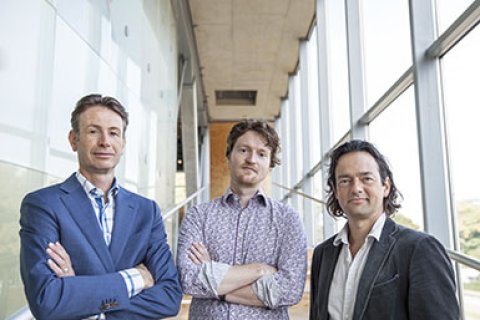
Inter-ethnic relationships and ethnic identity among Dutch adolescence in online and offline social networks
Main applicant: Dr Rense Corten (Assistant Professor in Sociology, SBS)
Co-applicants: Prof R. Helms (Sciences), Dr M. Spruit (Sciences), Prof F. van Tubergen (SBS/ICS), Prof S. Brinkkemper (Sciences/ICS)
This project aims to develop effective methods for collecting and analysing data about young people's online social networks in the Netherlands. It forges a connection between the fields of Social Sciences and Information and Computing Sciences, by combining existing expertise in these different disciplines. In terms of its content, the research will help answer the following questions: 1) To what extent does the ethnic segregation of online social networks influence ethnic prejudices and the segregation of face-to-face contacts? 2) How does the sharing of information about ethnicity within online networks affect the formation of online relationships?
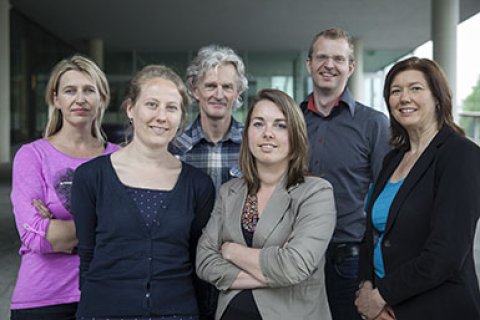
Moody or depressed? Distinguishing normal irritated behaviour from the early signals of depression among adolescents using phone-based micro-measurements of day-to-day mood swings.
Main applicant: Dr Loes Keijsers (Assistant Professor in Adolescence, SBS)
Co-applicants: Dr M. Hillegers (UMCU), Prof T. ter Bogt (SBS), Dr R. van de Schoot (SBS), Prof W. Vollebergh (SBS), Dr W. Cahn (UMCU)
Depression is relatively prevalent among teenagers, but is not always diagnosed or treated because other early signs of depression among teenagers bear a close resemblance to normal adolescent behaviour. This project will assess whether young people suffering mild depression can be identified through abnormal patterns of mood swings. The researchers will assess adolescents during two three-week periods each year. As well as completing online questionnaires, 300 adolescents will provide an indication of their mood several times each day, using an app on their mobile telephone. The knowledge acquired from this rich source of data will be used in an app intended to help young people who display early signs of depression more quickly in future.
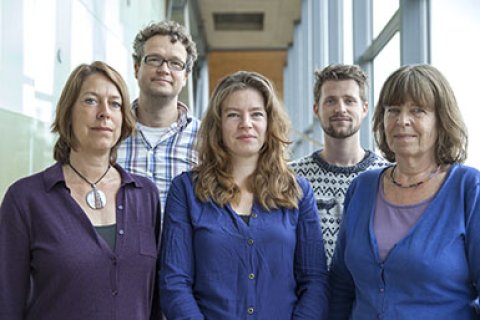
Young people's language as a marker of group identity in multi ethnic encounters in an urban context
Main applicant: Dr Jacomine Nortier (Associate Professor in Linguistics, H)
Co-applicants: Dr Irina van Aalst (GEO), Dr Gideon Bolt (GEO)
This research focuses on the complicated ways in which urban public spaces are used by groups of young people. Different groups claim territory and distinguish themselves from each other through their clothes or music, although we will be concentrating on the use of language and its relationship with ethnicity. Data will be collected through interviews with and observations of members of various groups. By combining expertise from two different disciplines – sociolinguistics and urban geography – we hope to gain an understanding of how linguistics play a role in creating group identities in the context of public urban spaces.
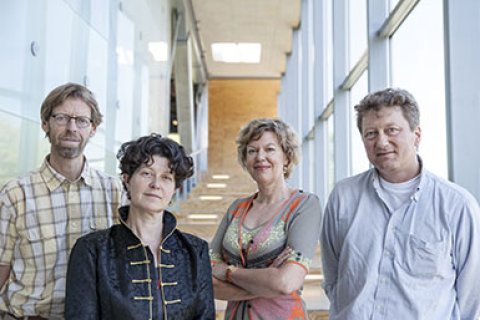
Strategies for acquiring resources in children and primates: anti-social and pro-social behaviour
Main applicant: Dr Albert H.A. Reijntjes (postdoc, Department of Pedagogical and Educational Sciences, SBS)
Co-applicants: Prof E.H.M. Sterck (Sciences), Dr M.M. Vermande (SBS), Dr H. de Vries (Sciences)
Having control over resources (scarce and coveted resources such as food, toys, partners) is crucial for both humans and primates. This project explores how the use of anti-social (force, aggression) and pro-social (collaboration) strategies is related to the acquisition of effective control over resources and how social skills (understanding others) have an influence on this. In order to explore these relationships and their development over time, both young adolescents and crab-eating macaques will be studied by means of observations, experimental manipulation and questionnaires. By comparing these two different species, the research aims to increase understanding of the evolutionary continuity of social strategies.
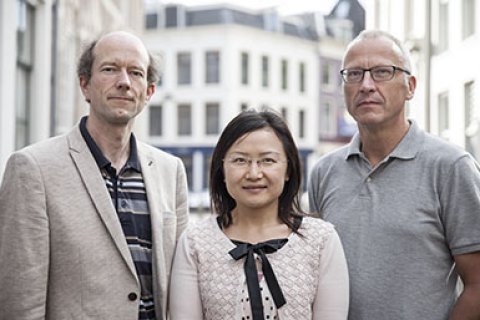
Predictors of dyslexia in the pre-verbal stage: a machine-learning study
Main applicant: Dr Hugo Schnack (Assistant Professor in Psychiatry, UMCU)
Co-applicants: Prof Frank Wijnen (Humanities), Dr Ao Chen (Humanities)
Previous research has shown a correlation between dyslexia and anomalies in linguistic development in early childhood. We intend to take this a step further and investigate whether data on speech-processing capacity among infants can be used to predict later problems with reading. To do this, we will analyse data from questionnaires completed by parents, visual attention tasks and EEG readings. We will train computer programs to identify patterns in this data that are typical for children with future reading problems. If the risk of dyslexia can be identified before a child learns to read, phonetic training can be used in an attempt to alleviate problems with reading.
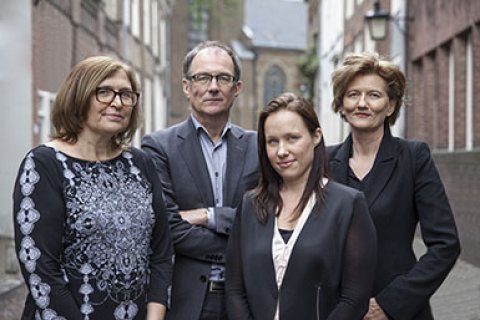
When being different becomes the norm: the impact of micro-aggression on lesbian, gay, bisexual and transgender adolescents in the Netherlands
Main applicant: Prof Marcel van Aken (Professor in Developmental Psychology, SBS)
Co-applicants: Prof Rosemarie Buikema (Humanities), Dr Iris van der Tuin (Humanities), Dr Laura Baams (SBS), Prof Judith Dubas (SBS), Dr E. Hodges (SBS)
In recent years, there has been much research into the impact of violence and aggression on the well-being of young lesbian, gay, bisexual and transgender (LGBT) people. In these studies, we intend to look at less obvious forms of rejection and discrimination, such as exclusion or annoying jokes. From the perspective of Developmental Psychology and Gender Studies, we will explore micro-aggression on the part of friends, classmates and media experienced among young LGBT people aged 16 to 22.
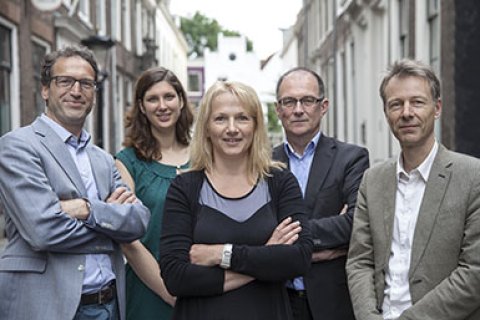
Violent behaviour among young people on the football field
Main applicant: Prof Maarten van Bottenburg (Professor in Sport Development, LEG)
Co-applicants: Prof M. van Aken (SBS), Dr A. van Hoof (SBS), Prof I. Giesen (LEG), Dr R. Rijnhout (LEG), Prof R. Spaaij (LEG), Dr M. Koster (LEG), Dr J. Vermeulen (LEG), Dr I. Claringbould (LEG)
This project explores how and why young people resort to violent behaviour in amateur football matches and how this can be prevented. The research focuses on the tension between the sport as an arena for the free expression of emotions and the need to enable sport to be regulated, safe and appealing. By using methods and perspectives from Developmental Psychology, Organisational Anthropology and Legal Science, we expect that the researchers will be able to develop new understanding of the emergence and prevention of violence in football that can help government and sports organisations in their efforts to create a safe sporting environment.
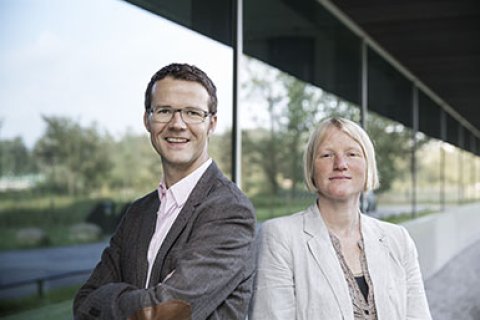
How social experiences during youth influence the development of the brain
Main applicant: Dr Corette J. Wierenga (Assistant Professor in Neuropsychology, Sciences)
Co-applicants: Prof L. Vanderschuren (VM/UMCU)
For children playing with friends is an essential part of growing up. We believe that play is extremely important for the development of an extensive and flexible behavioural repertoire. Negative social events during childhood can have long-term detrimental effects on social and cognitive skills in later life. We use rats as animal models to investigate how the brain is formed by social play behaviour, both at synaptic and behavioural level. We expect our results will contribute to defining the social conditions children need to develop into independent and emotionally stable adults.
Film portrait Corette Wierenga
Film portrait Louk Vanderschuren

